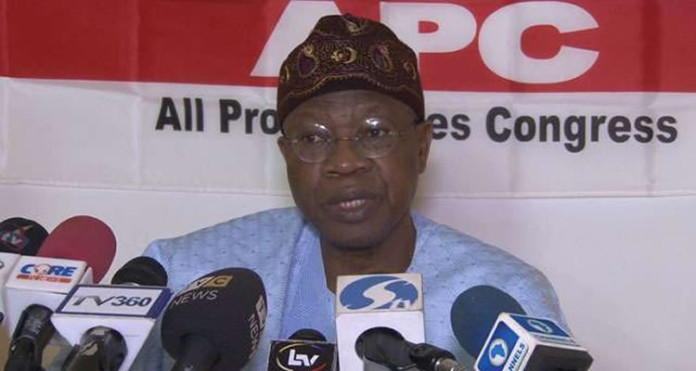Minister of Information Lai Mohammed yesterday said the country is broke.
He spoke to State House correspondents at the end of the Federal Executive Council (FEC) meeting in Abuja.
He said the Federal Government took a painful decision by increasing the pump price of petrol from N86.50 to N145 per litre.
According to him, the current problem is not about subsidy removal but a result of dwindling income of the government.
He said: “The current problem is not really about subsidy removal. It is that Nigeria is broke. Pure and simple!
“It is like somebody who has been earning N100,000 a month and he is faced with a situation where his employer says henceforth you will be earning N10,000 a month. He would need to make some very painful decisions and some very painful adjustments. That is the situation with Nigeria today.
“A few months ago, we were earning as much as $100 for every barrel of crude. In the months of February and March, we were short of…so, we no longer have the resources, the foreign exchange to bring in refined fuel products. And our economy is shrinking. We appreciate the fact that the decision is going to affect everybody.
“We appreciate what we are going through, but Nigerians should also know that the government has the responsibility at times to take very difficult decisions. So, it is not always about popularity.”
Mohammed and Minister of Labour, Chris Ngige also said negotiations with the union leaders would continue.
They also denied allegations that the government was encouraging factionalism of the Nigeria Labour Congress (NLC) at negotiated separately with a faction of the NLC during meetings to avert strike.
“We are ready to discuss with anybody on the way forward on this issue.” Ngige said.
He disclosed that the Federal Government has agreed to meet some of the demands of labour which include the reconstitution of Petroleum Products Pricing and Regulatory Agency (PPPRA) Board in the next two weeks.
According to him, a 15-man committee has also been set up to look at the demands of labour.
Stressing that the government was not promoting factionalism, he said: “We are trying to bring them under one roof on an issue that concerns all Nigerians.
“We wanted to speak to the sensitive sectors of the economy and that was why we brought them in.”






